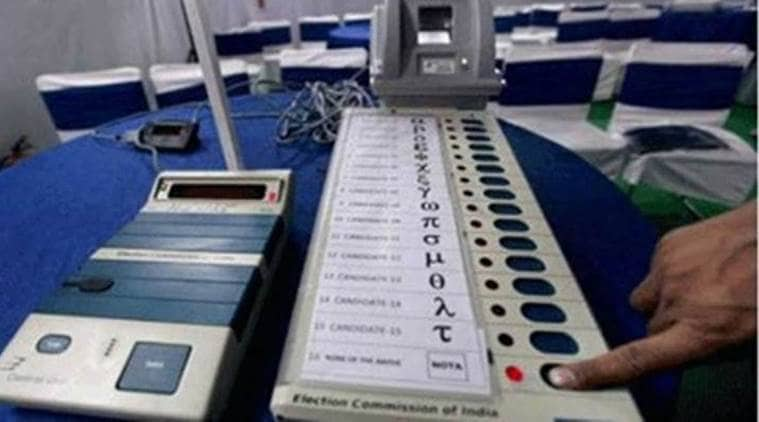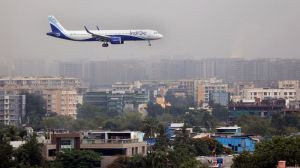Basic services absent, two villages in Saurashtra boycott elections
"After learning that residents of the village were boycotting polls, I sent a team of officials who tried to persuade them to take part in the election. Efforts went on until 4 pm but the residents remained adamant," said Ravi Shankar, district election officer.
 Gajdi village sarpanch Harsur Boricha told The Sunday Express that they are seeking basic needs such as water and roads for long.
Gajdi village sarpanch Harsur Boricha told The Sunday Express that they are seeking basic needs such as water and roads for long.
Complaining that the BJP government in Gujarat has failed to provide them basic amenities such as roads, water and electricity, voters in two villages of Saurashtra region boycotted the polls on Saturday. Not one of 1,068 voters at Gajdi village, of Tankara taluka in Morbi district, turned up at the polling booth. Similarly, zero votes were polled at Bhaniya village, in Khambha taluka of Amreli district.
Residents of Bhaniya had earlier boycotted the district panchayat election in 2015. Bhaniya is part of Dhari Assembly constituency from where former minister and senior BJP leader Dilip Sanghani is in the fray. Gajdi is part of Kalavad Assembly constituency, a reserved (SC) seat in Jamnagar district. In 2012 Assembly polls, BJP had won it by nearly 7,000 votes. This time, the party has fielded Mulji Ghaiyada, replacing sitting MLA Meghji Chavda. The Congress candidate is Pravin Muchhadiya.
Ravi Shankar, district election officer and district collector of Jamnagar, said: “After learning that residents of the village were boycotting polls, I sent a team of officials who tried to persuade them to take part in the election. Efforts went on until 4 pm but the residents remained adamant. They said they will vote only after assurance from the government that the village will get drinking water from a particular source, and that roads will be built.” He added, “Since the village is not part of our administrative purview, we couldn’t give them assurance.”
Shankar said the administration has reported it to Gujarat Chief Electoral Officer B B Swain and the Election Commission. Gajdi village sarpanch Harsur Boricha told The Sunday Express that they are seeking basic needs such as water and roads for long. “A line was laid to pump drinking water to our village from Dhrol town in Jamnagar district. But they never pumped water to our village. They said we should contact Morbi district authorities after it came into existence in late 2013. We approached officers in Morbi repeatedly, but each time we were told that we will get water from Dhrol. We are not getting water from anywhere…villagers depend on a single well, which goes dry during summer,” said Boricha.
Most villagers are Ahirs, farmers by profession. The election boycott comes amid the BJP’s claim that it is seeking seek votes in the name of development. But the village, located on the bank of Demi river, has no bridge, locals said.
“There is a causeway but that is too dangerous — water keeps flowing on it,” the sarpanch said. “Villagers have 400 bigha agricultural land on the other side, and they find it difficult to cross when Demi-III dam is full. We had approached politicians from the region over the issue, and they had raised it in the Assembly. But nothing has happened so far.”
He said if the authorities did not pay attention, the villagers will also boycott panchayat elections due in February next year. At Bhaniya, located inside Gir forest, its 800 residents had boycotted the 2015 panchayat polls alleging that the state government had failed to provide them a good approach road and round-the-clock electricity. On Saturday, they once again decided to not vote.
“Primary report from the returning officer says that nobody from the village exercised their franchise despite efforts to persuade them,” Rajesh Aal, deputy district election officer of Amreli, said. Bhaniya is surrounded by forests, and sources said development projects are facing hurdles due to environmental norms. Villagers also complained that mobile telephone service is not available in their village. A majority of the villagers are cattle-herders.
- 01
- 02
- 03
- 04
- 05































